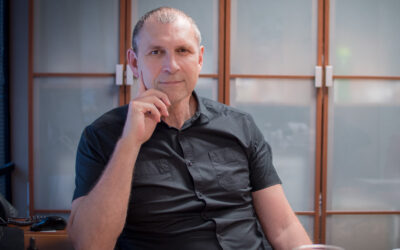Acupuncture for Dizziness and Vertigo
Treating Dizziness and Vertigo with Chinese Medicine
Manjusha Ladha, L. Ac.
Dizziness and vertigo are distinct but related disharmonies. Dizziness is a sensation of lightheadedness and feeling faint. It may be mild to severe. Vertigo is generally more severe and presents with dizziness accompanied by a sensation of the surroundings spinning even though one is stationary. Some of the other symptoms that may present along with dizziness/vertigo are headaches, nausea or vomiting, ringing in the ears, hearing loss, sensation of heaviness in the head, insomnia, sinus or ear congestion, visual disturbances, high blood pressure, fatigue, anxiety.
Those diagnosed with Meniere’s disease almost always present with rotational vertigo. Dizziness/vertigo may also present after a long-term illness, or blood loss. Life style issues like frequent air travel can aggravate dizziness and vertigo. In Chinese medicine there are various patterns that may be diagnosed for dizziness/vertigo. The most commonly seen patterns involve qi or yin deficiency of liver or kidney, liver wind or fire, liver yang rising, spleen qi deficiency, blood stagnation, and phlegm-damp accumulation. As is often the case, symptoms of more than one pattern may be present. An acupuncturist will take into account all the presenting symptoms and arrive at a suitable composite diagnosis for the individual.
Acupuncture and Chinese herbs are very effective in treating dizziness/vertigo. I have had very good success in bringing relief to my patients with acupuncture and add herbs to the protocol as necessary. More specifically, I recently treated two patients with severe episodes of dizziness and vertigo. One with a long standing history of Meniere’s disease with severe episodes of nausea and vomiting, hearing loss and constant tinnitus; the other with more recent symptomatology but severe and persistent enough to make it difficult to do every day tasks like driving. This person was unable to drive himself for his initial treatment. In both cases substantial improvement was seen after the first acupuncture treatment. The second patient was able to drive himself for the third treatment and both were able to do air travel with out much discomfort. As is always the case, a series of treatments was needed for sustained results. The patient presenting with more recent symptoms saw enough improvement after just three treatments to not require more ongoing care. The patient with the more long-term presentation needed a longer series of treatments. In both cases an herbal formula was also used based on individual symptoms.
In closing, acupuncture is a safe and highly effective way to address dizziness and vertigo. If you’ve recently experienced these symptoms for the first time, it is important that you see your primary care doctor first to rule out serious underlying medical conditions such as infection, cardiovascular, or neurological disease.



